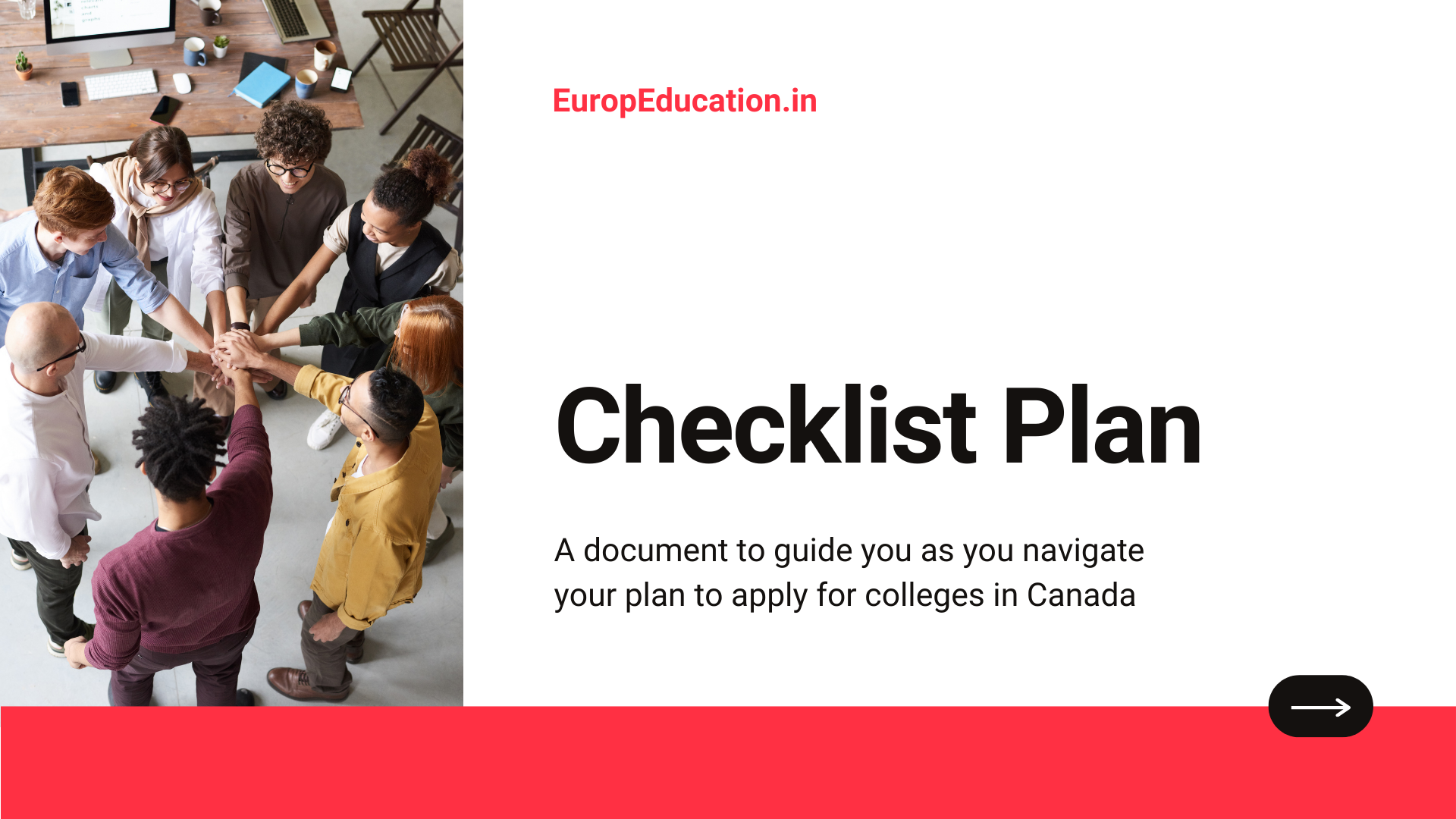As an Indian student aspiring to pursue higher education in Canada, securing a Canada student visa is one of the crucial steps in your journey. The process might seem overwhelming, but with the right guidance and proper documentation, you can make the entire procedure smooth and efficient. This blog will provide a comprehensive Canada student visa checklist to ensure you don’t miss any important steps in the application process.
Why Do You Need a Canada Student Visa?
A Canada study visa is essential for international students who plan to study in Canada for more than six months. It allows students to reside in Canada for the duration of their studies and even work part-time while pursuing their education.
If you’re planning to stay longer than six months, you will need a study permit, which also serves as your student visa for Canada. The process to acquire a Canada student visa requires careful attention to detail and the collection of several important documents.
Let’s dive into the detailed Canada student visa document checklist you need to follow for a successful visa application.
1. Valid Passport
Your passport is the primary document for your visa application, and it must meet certain requirements:
- It must be valid for at least six months beyond the date of your arrival in Canada.
- Your passport must have at least two blank pages for your visa and immigration stamps.
Ensure your passport is in good condition and can be used for the duration of your stay in Canada.
2. Proof of Acceptance from a Designated Learning Institution (DLI)
Before applying for a study visa, you must first be accepted into a Designated Learning Institution (DLI) in Canada. A DLI is an educational institution that is approved by the Canadian government to accept international students.
You need to provide the following:
- An official letter of acceptance from the Canadian institution where you have been admitted.
- The acceptance letter should contain details such as your full name, the program you are enrolled in, the duration of your course, and the start and end dates of the program.
The DLI number, which identifies the institution as an approved provider, will also be included in the acceptance letter. This is an essential document for your visa application.
3. Proof of Sufficient Funds
One of the key requirements for obtaining a Canada student visa is demonstrating that you have enough financial resources to cover your tuition fees, living expenses, and other costs during your stay in Canada.
This can be proven in various ways, including:
- A recent bank statement showing adequate balance.
- A letter from a sponsor or financial institution confirming their financial support.
- Proof of scholarship, if applicable.
- A loan sanction letter, in case you have secured an education loan.
As per the Canadian government, you must have enough money to cover your tuition fees and living expenses for a year (approximately CAD 10,000 to CAD 12,000 per year), in addition to any other expenses for your studies.
4. Proof of Identity
To prove your identity, you need to provide the following documents:
- Passport-sized photographs (2-3) as per the specifications mentioned by the Canadian visa authorities.
- Additional identity documents, if required (such as national ID card or Aadhaar card).
It’s important that your photos meet the standards set by the immigration authorities, as failure to meet these requirements could delay your visa processing.
5. Statement of Purpose (SOP)
A Statement of Purpose (SOP) is an essential part of your Canada student visa application. This document explains your academic background, why you chose to study in Canada, and your career goals. The SOP should:
- Outline your reason for selecting a particular program and institution in Canada.
- Demonstrate how the program aligns with your career aspirations and academic interests.
- Explain why you want to study in Canada and how this will help you achieve your future goals.
- Provide insights into your intent to return to India after completing your studies.
A well-written SOP will increase the likelihood of your visa being approved, so take time to craft a convincing and sincere statement.
6. Medical Examination Report
Canada requires international students to undergo a medical examination to ensure that you do not have any health conditions that may pose a risk to the public. The medical examination should be done at a designated medical center authorized by the Canadian authorities.
In general, the medical exam will involve a check-up, blood tests, and chest X-rays to check for tuberculosis. You will need to provide the medical exam report as part of your visa application. Be sure to schedule your appointment well in advance to avoid delays.
7. Police Clearance Certificate (PCC)
In some cases, Canada may ask you to submit a Police Clearance Certificate to ensure that you have no criminal background. A PCC is typically required if you have stayed in any country for more than six months in the past 10 years, other than India.
You can get the PCC from your local police station or authorized agency. Ensure that it is issued recently, as it should not be more than three months old at the time of submission.
8. English Language Proficiency Test Scores
If you’re applying for an English-taught program in Canada, you may need to provide proof of your proficiency in the English language. The most commonly accepted English proficiency tests are:
- IELTS (International English Language Testing System)
- TOEFL (Test of English as a Foreign Language)
You should provide the official test score reports when submitting your visa application. Some universities might have specific score requirements, so be sure to check with your institution to ensure you meet the minimum score required for both admission and visa approval.
9. Visa Application Forms and Fees
You will need to fill out the study permit application form (IMM 1294), which is available on the official website of the Immigration, Refugees, and Citizenship Canada (IRCC).
Additionally, ensure you have paid the visa application fee, which is around CAD 150 (subject to change). You will need to upload the receipt of payment as part of your application process.
10. Biometrics Appointment
Biometrics (fingerprints and photographs) may be required for your Canada student visa application. Depending on where you are applying, you may be asked to attend a biometrics appointment at a visa application center (VAC).
11. Additional Documents (If Applicable)
Depending on your individual circumstances, you may be required to provide other documents, such as:
- Previous academic transcripts and certificates.
- Work experience documents (if relevant).
- Documents of family members who are accompanying you (if applicable).
Conclusion
The Canada student visa checklist is comprehensive and requires careful attention to detail to ensure your application is complete and accurate. By gathering all the necessary documents, following the guidelines set by the Canadian government, and preparing for any additional requirements like medical exams or biometrics, you can significantly improve your chances of getting your Canada study visa approved. Be sure to keep track of deadlines and seek assistance if needed.
Good luck with your visa application, and prepare to embark on an exciting academic journey in Canada!
4o mini



